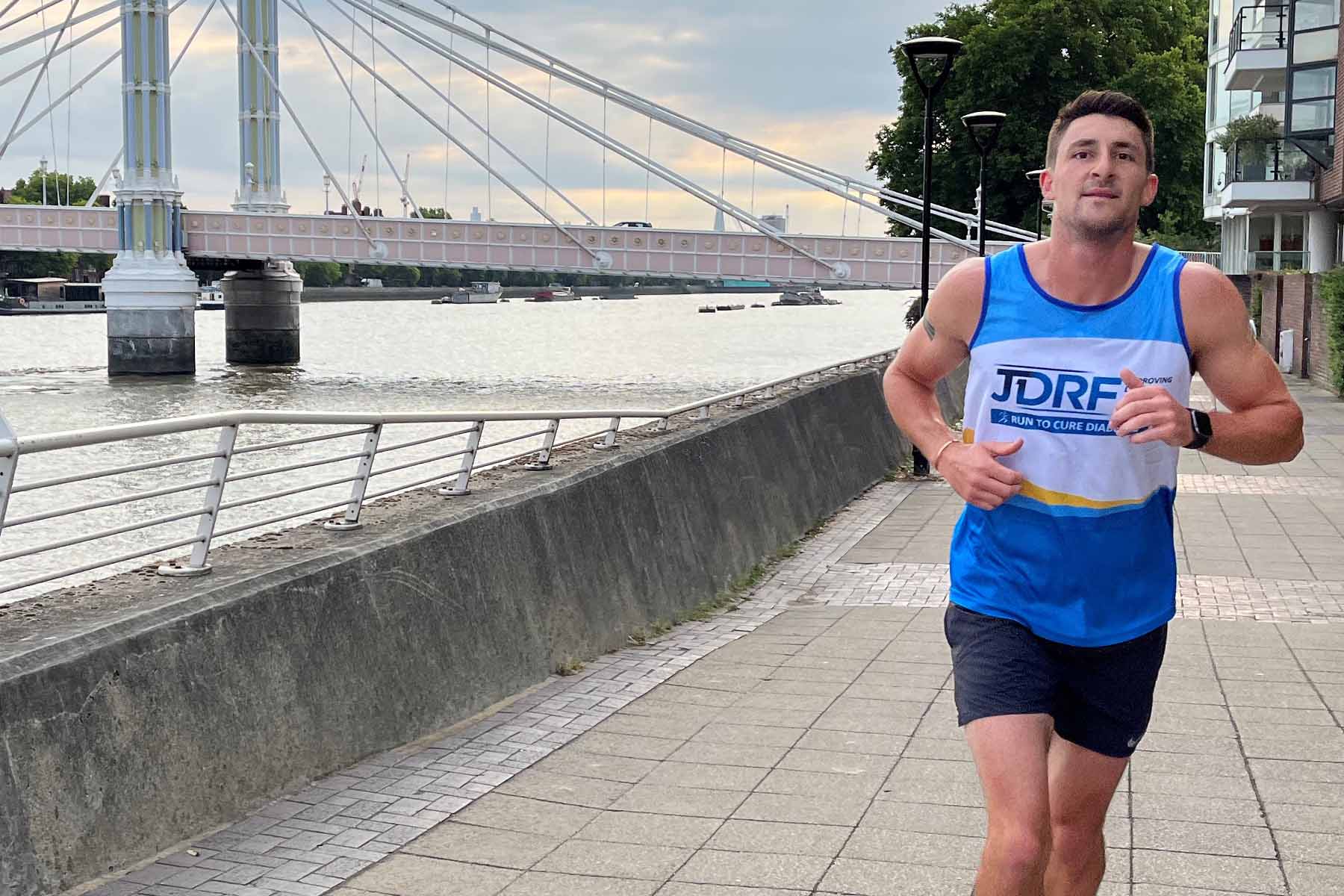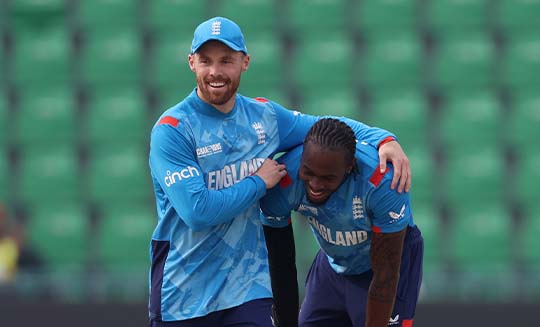PROFESSIONAL CRICKETERS' ASSOCIATION PRESS RELEASE
Former Sussex player Callum Jackson is running seven marathons in seven days.
To see more articles, click here
Callum Jackson is running seven marathons in as many days to raise money for the Juvenile Diabetes Research Foundation (JDRF) to help find a cure for Type 1 Diabetes and prove you can achieve anything with the condition.
The former Sussex player found out he had Diabetes as a 14-year-old but was reassured he could still fulfil his dream of playing professional cricket when being told that former Pakistan quick Wasim Akram also had Type 1 Diabetes.
Jackson is aiming to raise money and inspire others also living with the condition to overcome adversity and prove anything is possible.
-
What inspired you to run seven marathons in seven days?
-
I have always had something inside me that wants to push myself and since being diagnosed with Type 1 Diabetes at the age of 14 I want to prove to myself and others living with the condition that anything is possible. I often get messages from parents of children who have Type 1 Diabetes saying that it really helps seeing me do physical events or seeing that I played professional cricket. It gives them hope that you can still achieve anything you want to while living with the condition. I am also raising money for a Type 1 Diabetes charity, JDRF.
- Explain your relationship with diabetes and JDRF?
- When I was 14 I was diagnosed with Type 1 Diabetes, which is an auto immune condition that still doesn’t have a main cause or a cure. I have done a few fund raisers for JDRF including the Brighton and London marathons and some half marathons. My Dad and Brother also completed the ‘Ride 100’ cycling event for JDRF and I am on the challenge committee for the charity.
- Was there any challenges being a professional athlete while having Type 1 Diabetes?
- In short yes. You have to deal with all the usual pressures of being a pro athlete that you would expect while also juggling your glucose levels. Things like exercise, stress, travelling & heat are all factors that effect a Type 1 Diabetics blood glucose levels so you have to keep these in mind while also trying to perform at your best all the time. If you get it wrong and your glucose levels are too high or too low this can affect your physical performance which often happens and obviously is not ideal as a professional athlete.
"The more people that talk about Type 1 Diabetes means others can be inspired and feel better about having the condition themselves."
CALLUM JACKSON
- What is your view on awareness of athletes who live with diabetes?
- I think it’s really great when I see athletes who have T1D talking about their condition. It’s nothing to be ashamed of, it isn’t caused by an unhealthy lifestyle or eating too much sugar, so the more people that talk about it means more people that can be inspired and feel better about having the condition themselves.
- Where will the marathons be taking place?
- The first two marathons took place in Sussex by the seafront. The weather for the first two was the hottest two days of the year and the second marathon took place during the hottest day on record in the UK..! I’ve now completed four and there are three to go which will take place in various locations in London as that’s where I live and where most of my training has taken place.
- How did you find adjusting to a second career?
-
I have always been into fitness and when I was a young professional at Sussex I did my level two and three personal training qualifications in the winter just as a back up. I am so glad that I did as when I finished at Kent I had the option to work in a gym and get some experience in a new industry that I was qualified in. I then built up my personal training business and started a personal training studio in Chelsea just before Covid. I also set up a cricket academy which runs across various locations in London. Initially I found the prospect of starting a new career very daunting but I am glad I had an interest and qualification to fall back on.
- Did you use the PCA for any support in transitioning post cricket?
- YES! The PCA funded half of my personal training qualification, my spinning qualification and are also funding half of my level three coaching qualification. All of which lead to me being able to transition into a new career as seamlessly as I did. I also got lots of valuable advise from my personal development officer about my options post cricket.
- How does living with diabetes effect your day to day life?
- It’s estimated that a person living with T1D has to make an extra 180 decisions per day than someone living without diabetes. So it effects everything really, you have to think about how many grams of carbs are in everything you eat, how much physical activity you have done and are going to do and inject the right amount of insulin accordingly. You then have to constantly test your glucose levels to ensure you are staying in range. It is a lot of extra work but it has taught me a lot about how to look after my body and it is part of who I am now!
Find out how to donate here: https://www.justgiving.com/fundraising/Callum-Jackson-7in7













